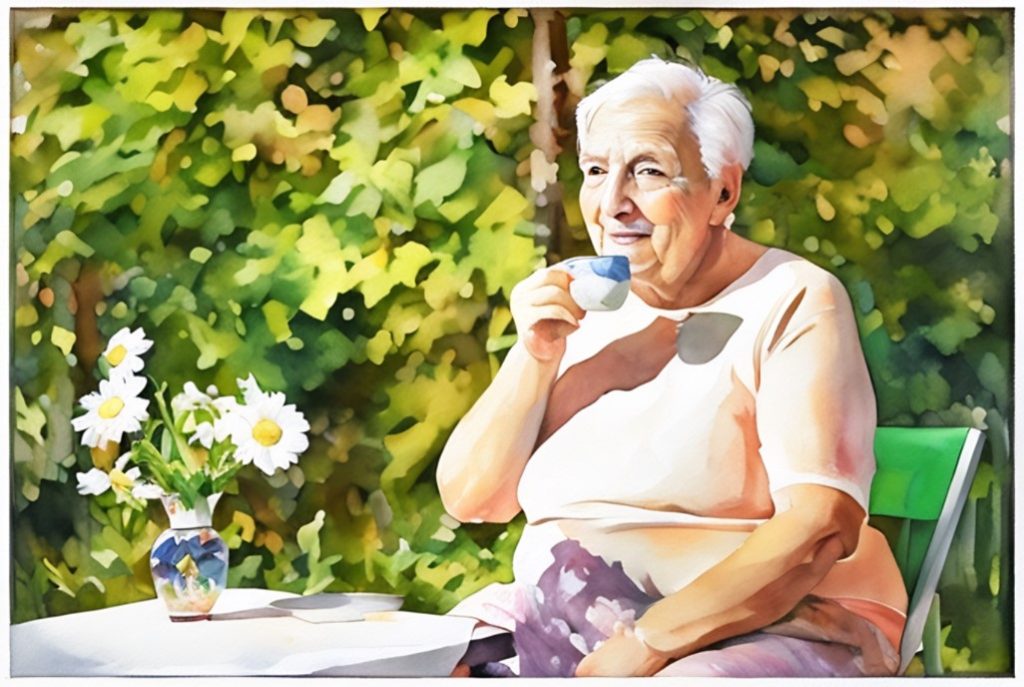Aging is a natural part of life, and embracing it with a focus on both mental and physical well-being helps seniors maintain independence, happiness, and vitality. By developing sustainable habits that nurture both the body and mind, individuals can improve their quality of life and reduce the risk of age-related challenges. Below is a comprehensive look at strategies for aging gracefully through a combination of mental and physical wellness practices.
1. Physical Wellness: Keeping the Body Strong and Active
Regular physical activity promotes mobility, balance, and cardiovascular health, while reducing the risk of chronic conditions. Even light exercises can have profound benefits.
Suggested Practices:
- Daily Walks: Walking 30 minutes a day improves cardiovascular health and strengthens muscles.
- Strength Training: Helps maintain muscle mass and bone density, preventing falls.
- Yoga and Stretching: Enhances flexibility and balance, which are crucial as we age.
- Swimming: A low-impact exercise ideal for joint health.
Staying physically active also boosts endorphin levels, enhancing mood and reducing symptoms of anxiety or depression.
2. Mental Wellness: Keeping the Mind Sharp
Mental stimulation and cognitive engagement are essential for healthy aging. Mental decline can be prevented or slowed with activities that challenge the brain.
Suggested Practices:
- Brain Exercises: Crossword puzzles, Sudoku, and memory games sharpen mental focus.
- Reading and Writing: Journaling or reading books expands knowledge and promotes reflection.
- Learning New Skills: Trying new hobbies or studying a foreign language builds new neural connections.
- Mindfulness Practices: Meditation helps reduce stress and improves emotional well-being.
Combining these mental activities with consistent social interaction promotes happiness and guards against isolation and loneliness.
3. Balanced Nutrition for Aging Well
Healthy eating habits fuel both the body and mind, making nutrition a vital part of graceful aging. A diet rich in antioxidants, healthy fats, and essential vitamins reduces inflammation and improves brain function.
Nutrition Tips:
- Omega-3 Rich Foods: Found in fish and walnuts, they support brain and heart health.
- Colorful Vegetables and Fruits: Provide antioxidants to combat cell damage.
- Stay Hydrated: Proper hydration is essential for metabolism and cognitive function.
- Limit Sugar and Processed Foods: Prevents energy crashes and chronic health conditions.
4. The Importance of Rest and Recovery
As people age, getting sufficient sleep becomes even more crucial. Sleep helps with memory consolidation, muscle repair, and emotional regulation.
Tips for Better Sleep:
- Establish a Routine: Go to bed and wake up at the same time daily.
- Create a Relaxing Environment: Keep the bedroom cool, dark, and quiet.
- Avoid Screen Time Before Bed: Blue light from screens can disrupt the sleep cycle.
- Daily Relaxation Practices: Activities like meditation or deep breathing improve sleep quality.
5. Social Connection and Emotional Health
Strong social ties improve emotional health and reduce the risk of depression or cognitive decline. Maintaining positive relationships and engaging in meaningful conversations fosters a sense of belonging.
Ideas to Build Social Connections:
- Join Community Groups: Participate in local clubs or hobby groups.
- Volunteer Work: Helping others creates a sense of purpose.
- Stay in Touch with Family: Regular calls or visits help maintain bonds.
- Organize Game Nights: Playing games with family or friends stimulates both mind and heart.
6. Finding Purpose and Staying Engaged
One of the keys to aging gracefully is maintaining a sense of purpose. Engaging in meaningful activities provides direction and emotional satisfaction.
Ways to Stay Engaged:
- Hobbies: Gardening, painting, or playing music can offer joy and relaxation.
- Travel: Exploring new places promotes lifelong learning.
- Mentorship: Sharing wisdom with younger generations provides purpose.
Conclusion
Aging gracefully requires a balance of physical health, mental stimulation, meaningful relationships, and emotional well-being. By incorporating daily movement, mental exercises, nutritious foods, quality rest, and social interaction into everyday life, seniors can enjoy vibrant and fulfilling years. Aging isn’t just about adding years to life; it’s about adding life to years—staying engaged, joyful, and connected through thoughtful practices.
These strategies, when combined, offer a holistic approach to aging, empowering seniors to embrace the process with confidence and happiness.



